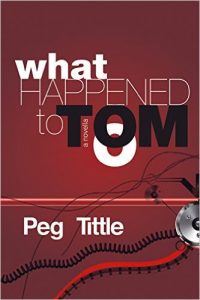Yeah. What she said.
Jan 29
Postscript to 13 Reasons Why
In case anyone’s still watching 13 Reasons Why (and see my lengthy post at https://www.hellyeahimafeminist.com/13-reasons-make-movie-maybe-write-novel-without-acknowledging-elephant-room/) … Tyler’s getting raped is presented as SO MUCH WORSE than either Jessica or Hannah getting raped. OF COURSE.
Dec 29
Opposition to the practice of sexual intercourse
“Interestingly, these two women, Swiney and Elmy, made clear their opposition to the practice of sexual intercourse. This practice has become so sacred that it is almost impossible to imagine any serious challenge being made to it. What we have seen in the last hundred years is the total and compulsory enforcement of that sexual practice upon women so that women are allowed absolutely no outlet or escape from it.
“But at the end of the nineteenth century, there were feminists who were prepared to challenge intercourse. They were prepared to say, for instance, that it was dangerous for women’s health; that it led to unwanted pregnancies or forced women to use forms of technology, contraception, that reduced them simply to objects for men’s use; that it humiliated women and made them into things. Feminists pointed out that sexual diseases transmitted through sexual intercourse were dangerous to women’s lives. They felt sexual intercourse to be a humiliating practice because it showed men’s dominance more obviously than anything else. They believed that this practice should take place only for the purposes of reproduction, maybe every three or four years. I know these are ideas which if you voiced them today would make people think that you had taken leave of your senses. But these were ideas that were absolutely mainstream [at the time]…”
from “Sexology and Antifeminism,” Sheila Jeffreys (italics mine), in The Sexual Liberals and the Attack on Feminism, Dorchen Leidholdt and Janice G. Raymond, eds.
Nov 26
Top Guns
I just read about the 588th Night Bomber Regiment of the Soviet Air Force, consisting of pilots who “flew in stealth mode at night and dropped precision bombs on German targets. The women pilots were all in their late teens and early twenties, and they flew about 30,000 missions between 1941 and 1945.” (p89 Kristen R. Ghodsee, Why women have better sex under socialism and other arguments for economic independence, p.89).
Nov 24
History, the News, Men, Women, Life, Death, Joy, Pain
History, many say, is nothing but violence, war, death …
Yes, because men write it.
If women wrote history, maybe we’d put something else center stage. Maybe themselves.
And maybe if all that violence didn’t make the front page, there’d be less of it.
And if men became unimportant, then what they did would become unimportant.
But pain, death—it can’t help but be important.
Yes, but there’s been more birth than death.
More joy than pain?
Perhaps. What I feel when I’m out paddling, the sparkles on the lake, the music in my headphones, it’ll never make the news. For others, it’s the delight of a child’s giggle. For others still, the swell of new knowledge gained or an antique restored. These things do not make the news.
(But how powerful a new car is? That makes the news. Every fucking day.)
Nov 16
When men are raped
When men are raped, as they often are in prison, does anyone ask them are they sure they didn’t want it? Does anyone come even close to suggesting they asked for it, they are to be blamed for it? Is anyone quick to add ‘alleged’ to the report?
Sep 29
Educating Women to Reduce Over-population. Right. They’re the problem.
So the other day I came across, yet again, mention of the idea that educating women would reduce over-population. (Right. They’re the problem.) I find that questionable.
If education makes the difference, then why aren’t we educating the men as well? And if the men are already educated, then clearly education isn’t the solution: they’re still impregnating/reproducing. (Perhaps advocates of such a solution are imagining that an educated woman is going to tell her uneducated husband or other would-be-impregnator to not stick his penis in her vagina, and the man will say ‘Okay’ and go do something else.)
I suggest that if we want to reduce over-population, we need to get rid of sexism. In a sexist society, men are valued more than women, so people want to have at least one son, so they keep reproducing until their goal is met. No sexism, no pressure to produce male babies, less reproduction.
In a sexist society, women have little control over their bodies, so contraception and abortion are often not easily available. No sexism, no mandatory pregnancy, less reproduction.
In a sexist society, men feel entitled to use women sexually without their consent. No sexism, no rape, less reproduction.
Sep 06
from Jeffreys’ The Spinster and her Enemies
“As Dale Spender points out in Women of Ideas, women’s theory
has been routinely dismissed and written out of history whereas
men’s ideas have been called philosophy or politics.1 In no
instance is this clearer than in the case of the feminist philosophy
of sex that we will be looking at here. The contempt with which
these theories have been treated doubtless owes a great deal to
the significance of their challenge to the dominant male ideology
of sex. …”
from Sheila Jeffreys, The Spinster and her Enemies
Sep 02
“Girls shouldn’t read any books written by men” – check it out
https://whyevolutionistrue.wordpress.com/2017/03/10/feminist-author-girls-shouldnt-read-any-books-written-by-men/
May 23
Why Pornography Matters … Andrea Dworkin
My god, there’s something placard-worthy in every paragraph!!
“Why Pornography Matters to Feminists” from Letters from a War Zone, Andrea Dworkin:
Pornography is a n essential issue because pornography says that women want to be hurt, forced, and abused; pornography says women want to be raped, battered, kidnapped, maimed; pornography says women want to be humiliated, shamed, defamed; pornography says that women say No but mean Y e s— Yes to violence, Yes to pain.
Also: pornography says that women are things; pornography says that being used as things fulfills the erotic nature of women; pornography says that women are the things men use.
Also: in pornography women are used as things; in pornography force is used against women; in pornography women are used. Also: pornography says that women are sluts, cunts; pornography says that pornographers define women; pornography says that men
define women; pornography says that women are what men want women to be.
Also: pornography shows women as body parts, as genitals, as vaginal slits, as nipples, as buttocks, as lips, as open wounds, as pieces.
Also: pornography uses real women.
Also: pornography is an industry that buys and sells women.
Also: pornography sets the standard for female sexuality, for female sexual values, for girls growing up, for boys growing up, and increasingly for advertising, films, video, visual arts, fine art and literature, music with words.
Also: the acceptance of pornography means the decline of feminist ethics and an abandonment of feminist politics; the acceptance of pornography means feminists abandon women.
Also: pornography reinforces the Right’s hold on women by making the environment outside the home more dangerous, more threatening; pornography reinforces the husband’s hold on the wife by making the domestic environment more dangerous, more
threatening.
Also: pornography turns women into objects and commodities; pornography perpetuates the object status of women; pornography perpetuates the self-defeating divisions among women by perpetuating the object status of women; pornography perpetuates the
low self-esteem of women by perpetuating the object status of women; pornography perpetuates the distrust of women for women by perpetuating the object status of women; pornography perpetuates the demeaning and degrading of female intelligence and
creativity by perpetuating the object status of women.
Also: pornography is violence against the women used in pornography and pornography encourages and promotes violence against women as a class; pornography dehumanizes the women used in pornography and pornography contributes to and promotes the dehumanization of all women; pornography exploits the women used in pornography and accelerates and promotes the sexual and economic exploitation of women as a class.
Also: pornography is made by men who sanction, use, celebrate, and promote violence against women.
Also: pornography exploits children of both sexes, especially girls, and encourages violence against children, and does violence to children.
Also: pornography uses racism and anti-Semitism to promote sexual arousal; pornography promotes racial hatred by promoting racial degradation as “sexy”; pornography romanticizes the concentration camp and the plantation, the Nazi and the slaveholder;
pornography exploits demeaning racial stereotypes to promote sexual arousal; pornography celebrates racist sexual obsessions.
Also: pornography numbs the conscience, makes one increasingly callous to cruelty, to the infliction of pain, to violence against persons, to the humiliation or degradation of persons, to the abuse of women and children.
Also: pornography gives us no future; pornography robs us of hope as well as dignity; pornography further lessens our human value in the society at large and our human potential in fact; pornography forbids sexual self-determination to women and to children; pornography uses us up and throws us away; pornography annihilates our chance for freedom.
















